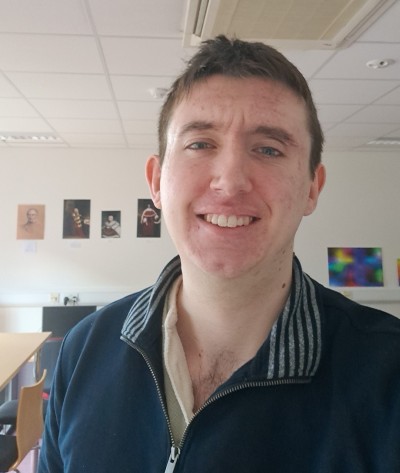Surrey Law Students hear from CPS Unit Head of Special Crime about sensitive issue of assisted dying
As the Terminally Ill Adults (Assisted Dying) Bill was introduced in Parliament, Medical Law and Ethics students heard from Adrian Roberts, Unit Head of Special Crime with the Special Crime and Counter Terrorism Division about the work of the Crown Prosecution Service, and how allegations of assisted dying are dealt with under the current law. Here Medical Law and Ethics student John Wood (pictured below) reports what Adrian said.

On 26 November, Adrian Roberts, Unit Head of the Special Crime and Counter Terrorism Division at the Crown Prosecution Service (CPS), delivered an insightful talk on the role of the CPS and the history of assisted suicide.
In the first half of his presentation, he debunked common myths about the CPS's functions and outlined the types of cases handled by the Special Crime Division, including deaths in custody, assisted suicide, and election offences. He then examined the Code for Crown Prosecutors, emphasising the importance of the two-stage test: the evidential stage, which assesses whether sufficient evidence exists to provide a realistic prospect of conviction, and the public interest stage, which considers whether prosecuting is in the public interest.
The second half of Adrian's presentation focused on assisted dying, a topic we were studying at the time, which had also gained attention due to the Terminally Ill Adults (End of Life) Bill.
In the last 15 years, the CPS has received 187 police referrals for assisted suicide offences. Of these, 11 led to prosecutions, resulting in four convictions.
He explored the history of suicide law, explaining how the Suicide Act 1961 decriminalised suicide while Section 2 made assisting or encouraging suicide a criminal offence. He then discussed the Purdy case in 2009, which compelled the Director of Public Prosecutions to issue clear guidance on the circumstances under which assisted suicide cases would be prosecuted.
To conclude, Adrian shared key figures, revealing that over the past 15 years, the CPS has received only 187 police referrals for assisted suicide offences. Of these, just 11 led to prosecutions, resulting in only four convictions. The talk was both engaging and enlightening, significantly enhancing our understanding of the CPS and its approach to assisted suicide cases.
Related sustainable development goals

